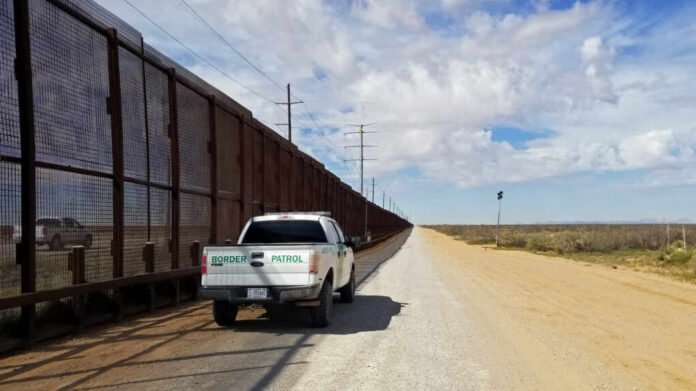
In a 5-4 decision issued last Thursday, the U.S. Supreme Court permitted U.S. Border Patrol agents to remove or cut the razor-wire fencing installed by Texas along the U.S.-Mexico border. This temporary ruling, seen as a setback for Texas’ robust border enforcement measures, stokes the ongoing debate over federal versus state jurisdiction in immigration enforcement.
The razor-wire fencing, part of “Operation Lone Star,” initiated by Texas Gov. Greg Abbott (R) in 2021, was strategically placed on private property along the Rio Grande River. Texas argued that this measure was crucial to deter illegal border crossings, a view that aligns with the concerns of many Americans about border security and immigration control.
New from Texas AG Ken Paxton:
"The Supreme Court's temporary order allows Biden to continue his illegal effort to aid the foreign invasion of America…This fight is not over." pic.twitter.com/HrCqPh2D93
— Charlie Kirk (@charliekirk11) January 23, 2024
The issue escalated when U.S. Customs and Border Protection agents began cutting the wire, prompting Texas to sue the Biden administration in October 2023. The state’s lawsuit claims federal agents violated Texas law by interfering with the fencing. In response, U.S. District Judge Alia Moses acknowledged the administration’s failure to prevent unlawful entries. Still, he highlighted the federal government’s sovereign immunity, which protects it from civil lawsuits.
The New Orleans-based U.S. Fifth Circuit Court of Appeals granted Texas a temporary block against federal agents from interfering with the fencing, citing the likelihood of Texas prevailing in its lawsuit. However, the Supreme Court’s recent decision, which saw Chief Justice John Roberts and Justice Amy Coney Barrett siding with the liberal justices, temporarily overturned this block.
This legal tussle underscores the complexity of balancing state rights with federal authority, especially in matters of national significance like border security. The Supreme Court’s temporary decision raises questions about the extent of state power in enforcing border security, particularly when it conflicts with federal actions.
Texas Attorney General Ken Paxton criticized the ruling, saying, “The Supreme Court’s temporary order allows Biden to continue his illegal effort to aid the foreign invasion of America.” Paxton’s statement reflects a broader conservative viewpoint, deeply concerned about the impact of unchecked immigration and the federal government’s approach to border control.
The Biden administration, on its part, defends its actions as necessary for Border Patrol agents to effectively monitor and respond to emergencies along the border. They argue that Texas’s measures impede their ability to carry out federal responsibilities, including apprehending, inspecting, and processing migrants.
This is correct. https://t.co/Je5Ah8grfr
— Greg Abbott (@GregAbbott_TX) January 23, 2024
In a Monday post on X, formerly known as Twitter, Gov. Abbott agreed with an observation by conservative commentator Jack Posobiec: “To be clear, the Supreme Court ruling today was specifically about the court order on cutting razor wire. The 5th Circuit still needs to hear the actual case on its merits. There is still a chance Texas wins.”
As the case awaits its next hearing before the Fifth Circuit on February 7, the Supreme Court’s decision’s implications have reignited debates over immigration policy, state versus federal power, and the effectiveness of physical barriers in managing border security.

































